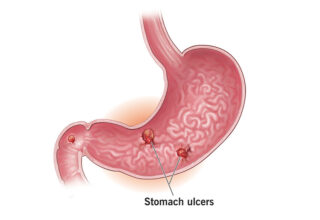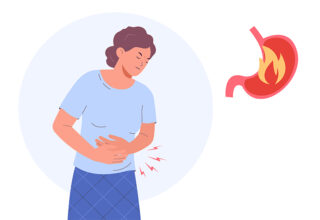When it comes to the respiratory conditions, bronchitis and pneumonia are two of the most common ones that people experience. Although both of them affect lungs and cause similar symptoms, there are some key differences that set them apart.
In this blog we will discuss bronchitis, pneumonia, their symptoms, causes and treatments, along with their similarities and key differences.
What Is Bronchitis?
Bronchitis is the inflammation of bronchial tubules, which carry air to the lungs. It can be classified into;
Acute Bronchitis:
It is the more common form of bronchitis, usually caused by viral infection such as flu or common cold. It can also be triggered by irritants , such as dust, smoke or pollutants. It usually lasts for a short period (few days to a few weeks) and can resolve on its own.
Chronic Bronchitis:
Chronic bronchitis is a more serious and long term condition. It is often caused by long term exposure to irritants like cigarette smoke. It is part of a group of lung diseases called chronic obstructive pulmonary diseases (COPD).
It is characterised by persistent productive cough(cough with sputum) without any identifiable underlying causes, lasting 3 months per year for 2 consecutive years.
What Is Pneumonia?
Pneumonia is a more serious condition that affects the air sacs (alveoli) in the lungs and causes them to fill up with fluid or pus. It can be caused by bacteria, viruses, or fungi. It leads to impaired gas exchange in lungs and makes it difficult for the body to get enough oxygen.
It can affect people of all ages but is more dangerous for infants, elderly and people with weakened immune systems.
Similarities Between Bronchitis And Pneumonia:
Bronchitis and pneumonia share several similarities. Due to these similarities it can be difficult to diagnose them based only on symptoms. Here are the key similarities between the both;
- They both affect the respiratory system.
- They both have symptoms like cough, shortness of breath, chest discomfort, and fatigue.
- They both can be caused by viral infections.
- Treatment approaches for both of them typically include managing symptoms, especially when the origin is viral.
- They both are diagnosed through a combination of physical exams, chest x-rays, sputum cultures, and blood tests.

Key Differences Between Bronchitis And Pneumonia:
While bronchitis and pneumonia both affect lungs, there are many key differences between the two;
| Symptoms / Aspects | Bronchitis | Pneumonia |
| Cause | Usually viral, but can be caused by irritants like smoke | Bacterial, viral, or fungal infections |
| Cough | Persistent with mucus that can be clear or yellowish | Severe, with thick discolored mucus, sometimes blood streaked |
| Fever | Low grade fever or none | High grade fever |
| Chest Pain | Mild discomfort or tightness | Sharp, stabbing pain, worsens with deep breaths |
| Shortness of breath | Occasional, usually mild | Severe, even at rest |
| Fatigue | Mild to moderate | Extreme fatigue with weakness |
| Wheezing | Common | Less common, but can occur |
| Additional Symptoms | Sore throat, runny nose | Confusion, rapid breathing, sweating and chill |
Symptoms Of Bronchitis:
Common symptoms of bronchitis include;
- Persistent cough often producing mucus that may be clear, yellow or green
- Wheezing, a high pitched whistling sound while breathing
- Chest tightness and discomfort
- Shortness of breath
- Low grade fever
- Fatigue
- Sore throat and runny nose (these symptoms usually accompany viral bronchitis)
Symptoms Of Pneumonia:
Common symptoms of pneumonia include;
- High fever, which can be as high as 105°F (40.5°C), and can be accompanied with chills
- Cough with thick mucus
- Sharp, stabbing chest pain
- Shortness of breath
- Fatigue and weakness
- Rapid breathing and heart rate
- Confusion
- Sweating and chills
Causes Of Bronchitis:
It is usually caused by a virus but in almost 10% of the cases it is caused by a bacteria.
Sometimes a cold and other respiratory tract infections can also turn into bronchitis.
It can also be caused by chronic exposure of the lungs to irritants, such as;
- Cigarette smoke
- Dust
- Pollutants
Causes Of Pneumonia:
Pneumonia is usually caused by a virus, bacteria or fungi. It can be divided into different types, based on its cause.
Bacterial Pneumonia:
It is caused by bacteria. The most common type of bacterial pneumonia is pneumococcal pneumonia, which is caused by Streptococcus pneumoniae bacteria.
Viral Pneumonia:
It is caused by a virus, e.g. influenza virus.
Mycoplasma Pneumoniae:
It is caused by Mycoplasma, which are tiny organisms having characteristics of both bacteria and viruses.
Fungal Pneumonia:
It is caused by fungi, e.g. Pneumocystis jirovecii
Treatment For Bronchitis:
Treatment for bronchitis depends on whether it is acute or chronic.
Acute bronchitis:
Since acute bronchitis is usually viral, antibiotics are not effective for it. Its treatment mainly focuses on relief of symptoms, such as;
- Rest and fluids
- NSAIDs
- Antivirals
- Antibiotics (if required)
- Steroids
Chronic Bronchitis:
Treatment for it may require lifestyle changes like quitting smoking, changes in work or home environment. As the condition progresses, treatment option may include;
- Bronchodilators
- Mucolytics
- Oxygen therapy
- Pulmonary rehabilitation
Treatment For Pneumonia:
Treatment for pneumonia depends upon its cause. If it is bacterial pneumonia, antibiotics may be used, while for viral infections, antivirals may be required. In case of fungal pneumonia, antifungals and antibiotics may be used.
In severe cases, hospitalisation and intravenous (IV) medicines may be necessary.
When To Seek Help For Bronchitis And Pneumonia?
You should seek medical attention if you are experiencing;
- High fever that is not responding to medicines
- Difficulty breathing
- Chest pain
- Confusion
- Coughing up thick discolored mucus or blood
- Symptoms persisting for more than a week
Final Thoughts:
While bronchitis and pneumonia are both respiratory diseases that affect lungs, they differ in symptoms, severity, and treatment. Understanding the differences between bronchitis vs pneumonia symptoms, along with their causes and treatment options is important for managing them effectively and ensuring a speedy recovery.








